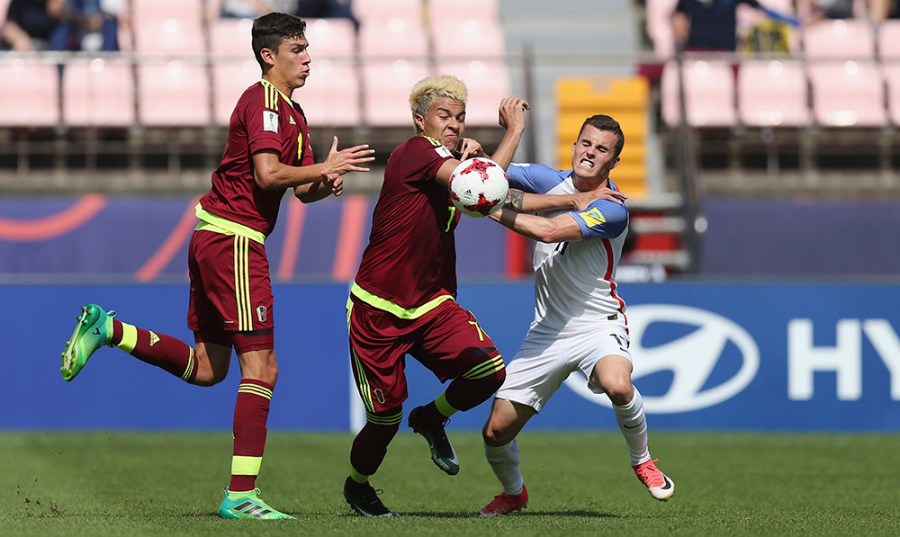Venezuela fell at the last hurdle in the Under-20 World Cup, losing 1-0 to England in the Final. But the most interesting and important hurdles are still to come.
This the generation that the country hopes will get them to their first senior World Cup, and be competitive once they get there. Venezuelan football has made giant strides in recent years. After years of taking the field with the aim of keeping the score down, at the start of the century the national team started to put some wins together.
The high point came in the 2011 Copa America, when they finished fourth and deserved better. Soon afterwards they beat Argentina in World Cup qualification, and for a while they entertained hopes of making it to Brazil in 2014.
At the time they were coached by the canny Cesar Farias, a sound organiser of the defensive unit. After the World Cup he was replaced by the former international Noel Sanvincente, a hugely successful coach in domestic football. He aimed for a more expansive approach, and soon ran into a problem. Venezuela’s ageing and creaking defensive unit was not good enough, and especially not quick enough, to be exposed in this way. It was a disaster, with relations in the dressing room falling apart under the strain. After six rounds he was replaced by ex-international goalkeeper Rafael Dudamel, with a brief to build for the future. That defensive problem has not gone away. Despite some interesting attacking talent, Venezuela lie bottom of the 2018 World Cup qualification table, with just six points from 14 games – in which they have conceded the grand total of 34 goals.
But in their Under-20 World Cup campaign Venezuela played seven games in which they let in just three goals. This is a heartwarming statistic for Dudamel, who was in charge of the side (and the fact that he was with the Under-20s is an indication of the tournament’s importance to Venezuela, especially as the senior side were in action last week, playing two friendlies in the USA).
Outstanding goalkeeper Wuilker Farinez has already been promoted to the senior ranks – he went to both the 2015 Copa America and last year’s Copa Centenario for experience, and was first choice in the two rounds of World Cup qualifiers at the end of March. Others will follow – full-back Ronaldo Hernandez and centre back Williams Velasquez, for example. Under-20 captain and midfield dynamo Yangel Herrera would seem to have a long international career ahead of him – and though Venezuela’s needs are not so great in the front positions, the likes of Adalberto Penaranda and Yeferson Soteldo should also have bright futures.
It is even possible that losing the Final to England on Sunday may work in Venezuela’s long-term advantage. Age level football is all about player development. Results are secondary. But that can easily be forgotten in triumph – especially the first time round (and it is worth noting that Venezuela had never before reached even the quarter-final of a global competition).
A tentative comparison might be made with the Mexico side who won the Under-17 World Championship in 2005. True, it is a lower age level, and one from which relatively few players make it all the way through to the senior ranks. Bearing this in mind, the Mexican side engendered massive hopes after thrashing Holland 4-0 in the semi-final and Brazil 3-0 in the Final. Some of those players have gone on to enjoy lengthy international careers at senior level. But defender Hector Moreno is the only one to have truly met the expectations. The attacking pair of Giovani Dos Santos and Carlos Vela have been useful – but 12 years ago they looked like potential world beaters at the highest level. Many others have fallen by the wayside, perhaps is some cases cursed by that adolescent success.
In age-limit football there is no such thing as a ‘final’. It is all a new beginning. On their second-half display against England on Sunday Venezuela might be entitled to believe that they deserved a draw. But maybe what they really did not deserve was to be crowned champions when the hard work – of making it though and making an impression at the World Cups of 2022 and 2026 – is only just starting.







